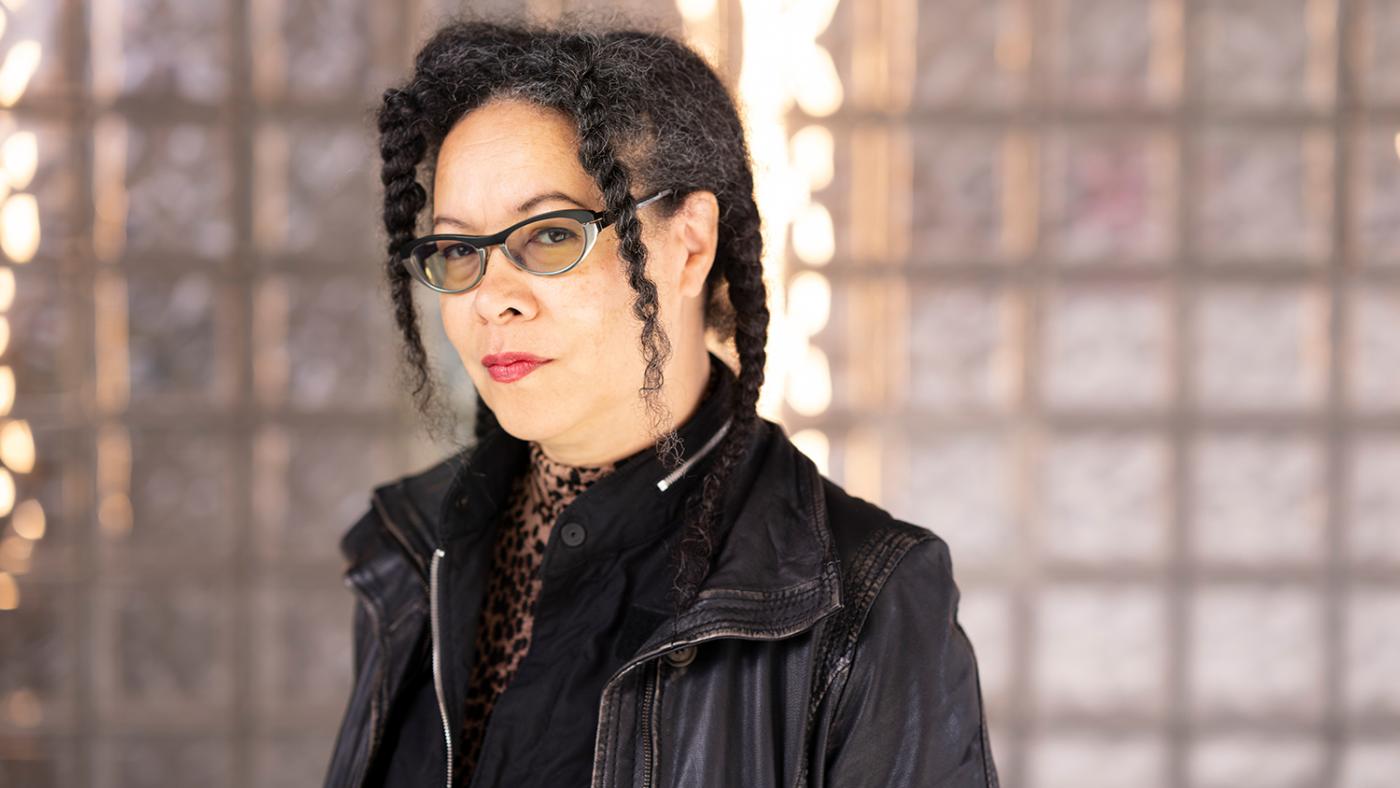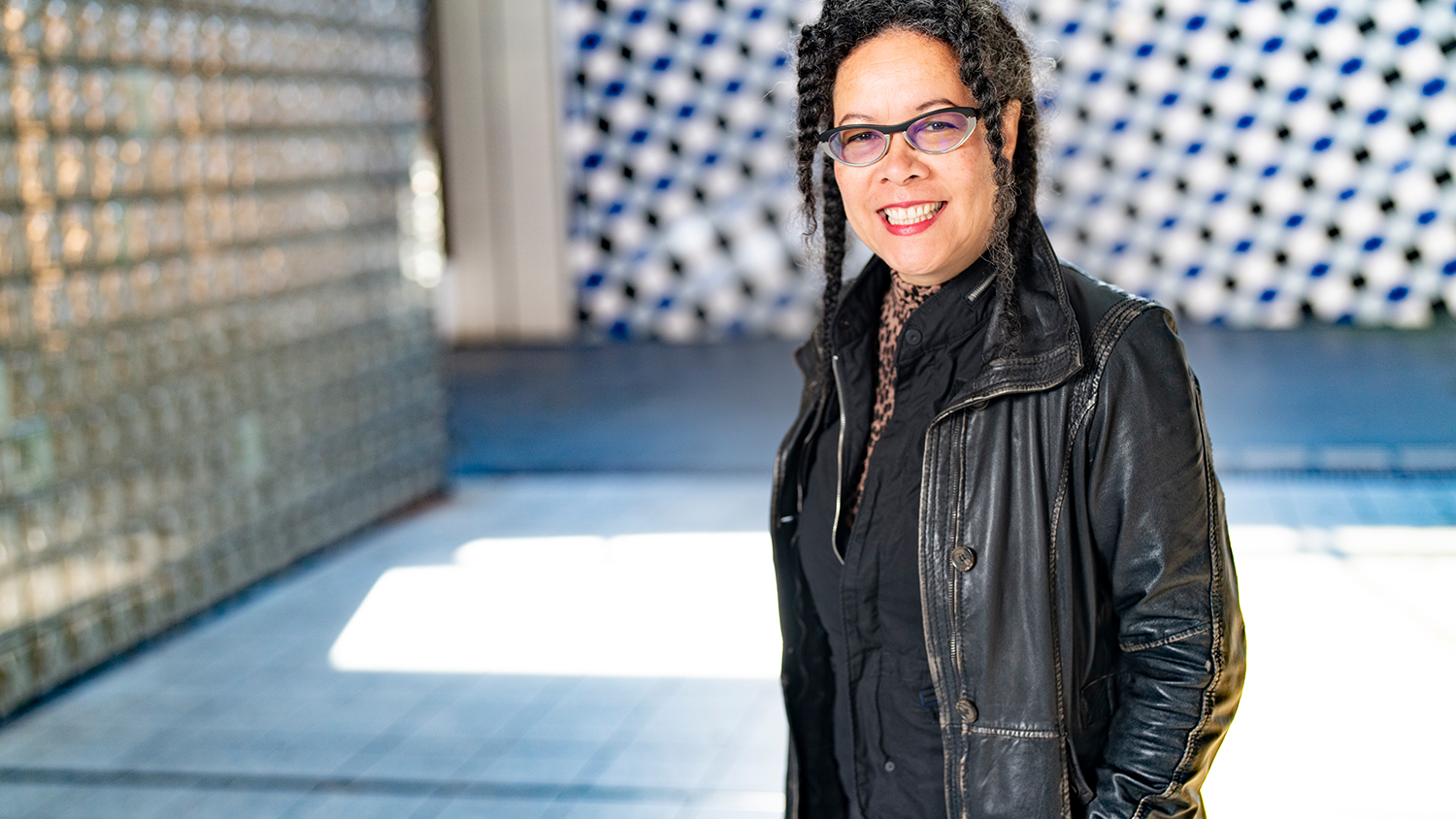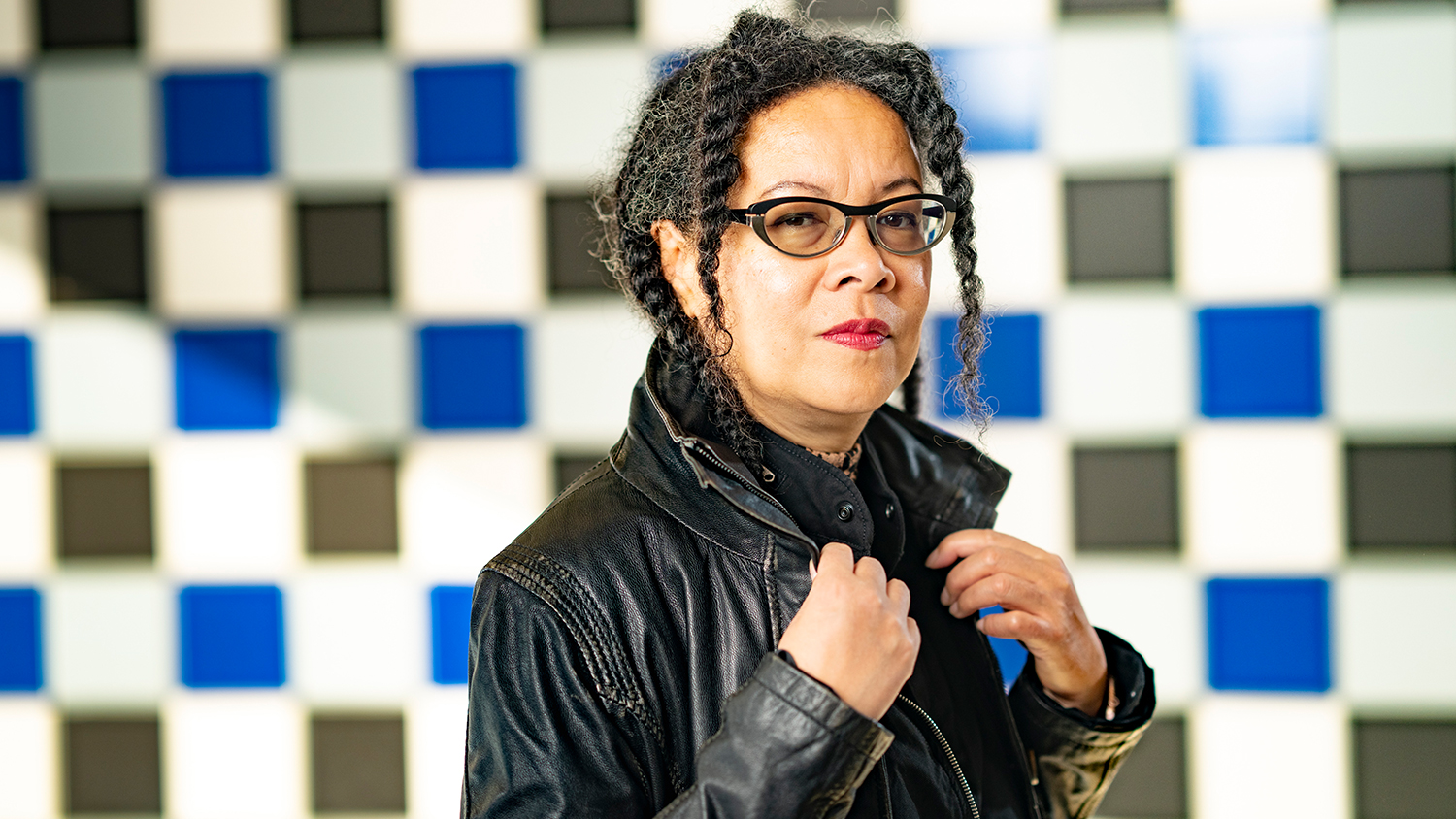Researcher calls on UU to acknowledge its history with slavery

"What you have discovered about our building is quite something. Can you help us think about how we can shed light on this?" Nancy Jouwe was touched to receive this request from employees from the department of Philosophy & Religious Studies, who work at Janskerkhof 13. Jouwe had just headed a research effort about Utrecht’s history of slavery, and one of the things brought to light by these efforts was that slave owners used to live in that particular building in the 18th century.
The slavers in question were Gideon Boudaen and Jan van Voorst. Boudaen had a top position in the Dutch East India Company (VOC in the Dutch acronym), which transported, bought and sold enslaved people. “As for Van Voorst, he was employed by the Dutch West India Company (WIC). In fact, he served as director-general at the infamous slave fortress Elmina, in Ghana, where millions of enslaved people were brought before being taken to the Americas”, Jouwe explains. “He himself sold around two to three hundred enslaved people. They were shipped to Suriname and he lived prosperously off the proceeds. A year later, he moved to Janskerkhof 13. The building has had some illustrious occupants.”
There are multiple traces of slavery at Utrecht University. Another VOC bigwig, Joan Gideon Loten, used to live in the building currently housing the university library, together with his Asian maid Siti. In addition, one of the lecture halls at UU is named after writer Belle van Zuylen (1740 – 1805), who made a considerable part of her fortune through colonial trade, including slavery.

Uncovered traces
The research Jouwe executed on behalf of the municipality of Utrecht made clear that the city has had more to do with slavery than what it might seem at first sight. The city council stimulated the establishment of the Utrecht Company, which invested in a coffee plantation in Suriname and founded a sugar refinery at Lucasbolwerk. There are barely any traces of these stories in the history books about Utrecht, noticed Jouwe eleven years ago, when she raised the subject while working as an artistic director at cultural institution Kosmopolis Utrecht. “Utrecht does not consider itself as a city connected to colonialism and slavery. It is not part of the image the city has of itself. After all, Utrecht was landlocked and did not have a VOC or WIC chamber. So, many people conclude that it must mean the city had nothing to do with it."
By uncovering these traces, Jouwe hopes that institutions and cultural organisations will be incited to raise awareness on the subject. “In 2011, we created a walking tour about Utrecht’s history with slavery. Now we are going to offer a walk specifically focused on the university's buildings. It would be good if institutions like the university museum and the Utrecht Archives could hold exhibitions about this theme. The city has kept quiet so far."
“I would also love it if Utrecht’s educational institutions would give space to this subject. They can do that in a multitude of creative ways. It is a thorny subject, of course. It is about scary, horrible things; it’s not fun or nice. But paying attention to it is an adult way of taking accountability for this part of history."
“That does not mean you’re guilty of it or should be ashamed. Personally, I think it’s interesting to see the city through that lens, because it fits into Utrecht’s multitude of historical layers. We’re talking about a historical period that covers two-and-a-half centuries. If it remains unseen, that will be regarded as strange at some point. Utrecht has the second largest university of the Netherlands with a very active historical community and different departments. Why do none of the studies have a course specifically focused on slavery, then?”
Do you think the municipality of Utrecht, to break the silence, should apologise for its history of slavery?
“Amsterdam mayor Femke Halsema actually apologised in response to a book about the history of slavery in the city, with which I was involved as well. It can help a society to take ownership of the subject. Not that that will stop or change anything, but it will help the city to get to know itself in a different way. So, yes, I do think that apologising has added value.”
Utrecht is still thinking about that. Why is such a long period of deliberation necessary? Why can’t a city just apologise?
“I suppose they fear financial or legal consequences. That also happened with apologies for the Holocaust: 'what will that cost us? Will we be sued for damages?' That's typically Dutch. However, I don’t think this will be much of an issue with the history of slavery, as it’s more about investing in a community, and that can be done in a symbolic way, with recognition, attention and taking a stand.
The emotional resistance of some societal groups may also play a part in this reluctance to apologise. Some say: ‘Slavery has nothing to do with me. My ancestors were small farmers in Enschede, they were serfs, they didn’t have it easy either!' It is always seen as a win-lose equation, as if doing one thing would stop you from being able to do something else. But the history of slavery has left deep marks that impact society even today. Why shouldn’t we acknowledge that?”
The history of slavery has become a hot topic in the past ten years or so. Why now?
“The Afro-Caribbean community, which has commemorated and celebrated the history of slavery and its abolition for decades, has really pushed the subject to the surface, by protesting and through art. Apart from that, there were several moments that really put the topic on the agenda, such as the canonisation of the 150th anniversary of the abolition of slavery in the Dutch Caribbean, in 2007. There were many moments like this that helped to bring about more recognition and attention, such as the unveiling of the national monument about the history of slavery, in 2002, and the establishment of the National Institute for the Study of Dutch Slavery and its Legacy, the following year.
“In research too, there have been changes. There is a new generation of researchers who really address the subject and consequently either build on or let go of the writings of the previous generation. Many of those publications portrayed it as something in which the Netherlands were only a minor player, so not that important. By asking new questions while using the same sources, we get a better idea of the situation and we turn it into a Dutch theme, not something far away from us.”
What kind of questions?
“For instance: what did life on the plantations look like? What types of resistance were there, and what did they entail? Marjoleine Kars has spent over ten years studying one specific uprising in the Dutch colony Berbice, west of Suriname, which was quite prolonged. That is one example of a question that has remained unanswered for a long time. Or: what about slavery in the Indian Ocean? A lot of research concentrates on the transatlantic trade of enslaved people.”
Nancy Jouwe’s fascination with colonial history is not a coincidence, but rather part of her DNA. Her father was Papuan leader Nicolaas Jouwe, who designed a Papuan flag, the Morning Star flag. The Dutch, who held sway over the Western part of New-Guinea between 1949 and 1962, promised the Papuans independence, but that never came to pass. After the UN took over its command for six months, Western New-Guinea ended up becoming part of Indonesia. Independence was further away than ever. Jouwe, who had been warned that he would be killed by the Indonesians, arrived with his family in the Netherlands in 1962 to remain here in exile. “My father has always been committed to the liberation struggle and the right for self-determination. That impacted me. As the youngest child, I probably inherited the inspiring aspects of this past rather than the traumatic ones.”

How were you faced with your own background while studying Gender Studies and General Literature?
“My research internship was a revelation. Together with Marlise Mensink, I interviewed fifteen first-generation Papua women. I was able to ask questions that I would have found rude otherwise. Out of respect, I would have never asked this older generation of women about how they used to be treated, or their widowhood. Because of my gender studies education, I learned that our history matters and I could also use it as a researcher. The university really helped me with that. At the same time, I felt very lonely there as I was one of the few students of color.”
Do you have examples of situations that stirred up that loneliness?
“My fellow students and teachers were all white. So, the stories you hear from your family or your culture are not echoed there. You are not represented in any way whatsoever. Besides, there was definitely some racism. In an art history class, we saw an image of a collapsed building in The Bronx, a typically black neighborhood, and some students started to joke around, saying that it wasn’t that bad, as there would be fewer black people after that. I thought: 'what the fuck?' and looked at the teacher, who just let it go. But that wasn't the only instance, there are more. It is so hard to deal with that in a period as a teenager who is forming their identity. It's a period where you’re looking for like-minded people with the same interests, and I had to look extra hard for them. But university qas always an stimulating space for me to learn to think critically and ask questions.”
Is the university more inclusive today?
“There are more teachers and students of color and I think the current way education is provided, which is more interactive, facilitates and contributes to topics like racism and the multicultural society being discussed more frequently. There is more dynamism, more discussion and, consequently, more clashes as well. But that isn’t wrong, per se.”
But what if that results in polarisation?
“Polarisation isn't always a bad thing. Friction among people helps to improve understanding, as philosopher Chantal Mouffe says. It is important to be prepared to listen to each other and improve as a society. Our nation isn’t used to talking about topics like racism and the history of slavery, so it doesn’t have the language to do that. That's why we often use American concepts. Many people feel personally attacked or say that they can’t see any racism among them. But not seeing it doesn’t mean it isn’t there.”
More understanding should happen eventually, right?
“A lot has changed in comparison to ten years ago. Look at how we used to talk about Zwarte Piet, or how underexposed the history of slavery was. There have been many shifts. At the same time, we must make sure those changes remain. UU, through the production and spreading of knowledge about Utrecht’s history of slavery, for instance, has an important role in this process.”
Photos: Ivar Pel